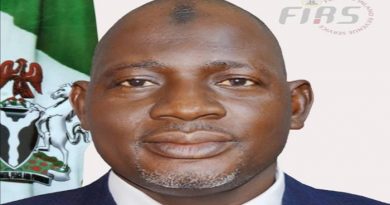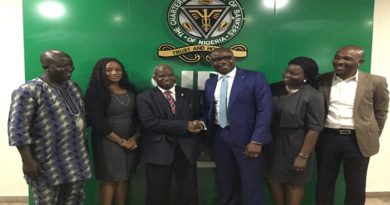Tax practitioners tasked on utilisation of opportunities in Finance Act
Tax practitioners have been urged to leverage on the many opportunities that abound in the new Finance Act to grow and expand their operations.
For instance, under the Finance Act, Micro Small and Medium scale Enterprises (MSMEs), do not need to register for Value Added Tax (VAT), their Company Income Tax (CIT) rate is zero per cent, but they must file returns.
Also, following the report by the National Bureau of Statistics (NBS) that 41 million MSMEs operate in Nigeria, the number of taxpayers registered with FIRS is over four million, and with the opportunities that abound in the new Finance Act, tax agencies were urged to capitalise on the MSMEs.
The Fiscal Policy Partner and West Africa Tax leader (PwC), Mr Taiwo Oyedele, gave the advice at a workshop on Tax Practice Management, organised by the Chartered Institute of Taxation of Nigeria (CITN), with the theme: “Leading a Successful Tax practice”.
He said: “As tax practitioners, this is a compelling thing to sell. Since they do not need to pay tax but for them to have their zero return, it will help you. I guarantee you that many would want to sign your contract. Our services are so essential and critical for national development.”
Oyedele talked about competitiveness, profitability, sustainability, skills and expertise as pertinent challenges facing practice firms.
To build and grow good and quality practicing firms, he advised that the following; “Setting up your practice, purposes and processes, people, products and services,” must be factored in.
President of CITN, Gladys Simplice, said the objective of the workshop was to assist practitioners in navigating around the daunting challenges in setting up and managing successful practising firms in an evolving tax system and economy.
According to her, it is important that tax practitioners, which have an important role to play in the tax system, should have a firm grasp on issues, some of which are complex and usually subjects of controversies.
She emphasized the need for members to work together to assist government towards achieving a sustained national development, and in shaping the Nigerian Tax System for increased revenue generation.
Simply added that it was equally important for tax practitioners to have a world view of tax issues such that their interactions with the tax administrators and clients will not coloured, biased or based on innuendos, but on the provisions of the relevant tax laws, regulation, procedures and processes in force at all times.
Towards having an efficient and effective tax system, she harped on the need for professionalism and integrity in the conduct of tax practitioners.
“This workshop is intended to enhance the knowledge, skills and expertise of licensed practitioners, intending practitioners, and other interested stakeholders on the ingredients useful to having a successful tax practice.
“Taxation and its application thrive on policies and laws which are subject to periodic changes and review in line with the expectations of the managers of any economy at a particular point in time.
“Therefore, it is pertinent that a tax practitioner is highly versed with ethics, standards and documentation procedures associated with the tax practice so as to be able to deliver value driven services to the clients as well as the government,” Simpice said.
The CITN President added that the workshop was structured to be an interactive session and an opportunity for the attendees to network.
Simplice also commended President Muhammadu Buhari for signing into law the Finance Bill 2019.
She said, “This is a good move and a commendable initiative which can be only be sustained and improved upon in the coming years.
“And we must all work together to assist government towards achieving a sustained national development. All stakeholders including Tax Practitioners have useful roles to play in shaping the Nigerian Tax system for better performance”.




